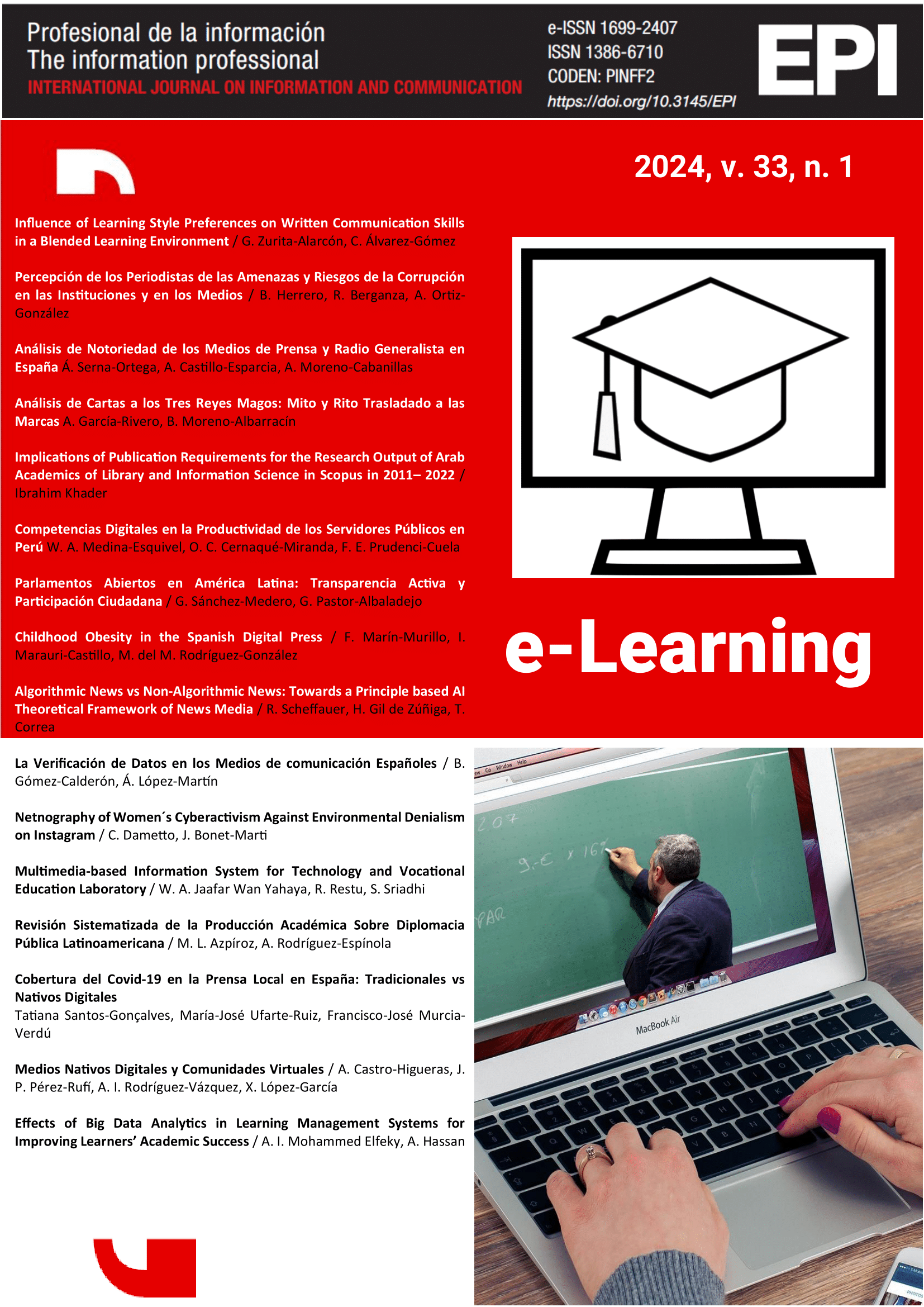Influence of Learning Style Preferences on Written Communication Skills in a Blended Learning Environment
DOI:
https://doi.org/10.3145/epi.2024.0001Resumen
Written communication is an essential skill for information professionals. Therefore, it is common to implement writing tasks to develop this skill in higher education. However, it is known that students' learning style preferences can influence improved written communication skills unequally among students, considering practice with writing tasks. This study examined how learning style preferences can influence the improvement of written communication skills in a blended learning environment for university students in information and management control engineering. Over seven semesters, 215 students participated in writing tasks supported by a discussion forum, and their learning style preferences were measured and analyzed using the Honey and Mumford model. Student performance on the online forum was repeatedly measured to determine the variation in written communication skills according to different learning style preferences and to identify which students benefited most from the intervention. The results indicate that although students' primary learning style preference influences their performance in written communication, these skills improve regardless of the learning style preference. Students with a primary "reflector" learning style preference were the most numerous and achieved the greatest learning gains. Students with a "theorist" learning style preference demonstrated medium-sized improvements in spelling and writing, and students with an "activist" learning style preference had small but significant increases in the quality of their justification and argumentation. Overall, the results suggest that learning style preferences are a relevant individual characteristic for personalizing electronic or hybrid learning environments in writing tasks.
Descargas
Downloads
Publicado
Número
Sección
License
Copyright (c) 2024 Profesional de la información / Information Professional

This work is licensed under a Creative Commons Attribution 4.0 International License.
Condiciones de difusión de los artículos una vez son publicados
Los autores pueden publicitar libremente sus artículos en webs, redes sociales y repositorios
Deberán respetarse sin embargo, las siguientes condiciones:
- Solo deberá hacerse pública la versión editorial. Rogamos que no se publiquen preprints, postprints o pruebas de imprenta.
- Junto con esa copia ha de incluirse una mención específica de la publicación en la que ha aparecido el texto, añadiendo además un enlace clicable a la URL: http://revista.profesionaldelainformacion.com
La revista Profesional de la información ofrece los artículos en acceso abierto con una licencia Creative Commons BY.


